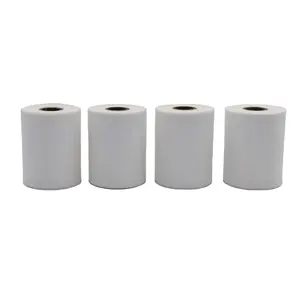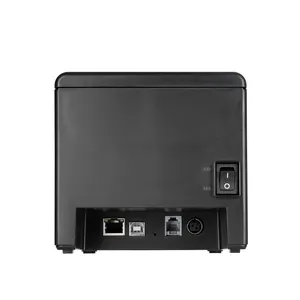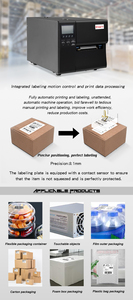Exploring Custom Thermal Printer Solutions
The realm of printing technology has evolved significantly, giving rise to specialized solutions like custom thermal printers. These printers are pivotal in various sectors, offering tailored printing capabilities for a multitude of applications. Thermal printing technology utilizes heat to transfer ink onto paper, making it a reliable choice for businesses requiring efficient and consistent printing.
Types and Applications of Thermal Printers
There are several types of thermal label printers and receipt printers that cater to different business needs. From compact, mobile options ideal for small-scale operations to robust, industrial models designed for high-volume environments, the versatility is vast. These printers are commonly employed in retail for printing sales receipts, in logistics for shipping labels, and in hospitality for order tickets, to name a few.
Features and Materials
A thermal printer for labels or receipts is distinguished by its use of thermal paper rolls—a specially coated paper that reacts to heat. This eliminates the need for ink cartridges, reducing maintenance and supply costs. Advanced features may include wireless connectivity, high-resolution printing, and compatibility with various operating systems, enhancing their utility in fast-paced business settings.
Advantages of Thermal Printing
Opting for a customizable thermal printer brings several advantages. The printouts are less likely to smudge, given the absence of liquid ink, and the printers themselves are known for their speed, reliability, and low operational noise. Moreover, the ability to customize the printer settings allows businesses to tailor the printouts to their specific needs, whether it's branding receipts with logos or printing specialized barcodes.
Choosing the Right Printer
When selecting a thermal printer for business, it's crucial to consider the printer's compatibility with existing systems and the specific requirements of the intended application. Factors such as print speed, resolution, connectivity options, and media handling capabilities should guide the decision-making process to ensure the printer aligns with operational demands.
Environmental Considerations
In today's eco-conscious market, many businesses are seeking eco-friendly printing solutions. Thermal printers can be a more sustainable option, as they reduce waste by eliminating the need for ink cartridges and can be paired with recyclable thermal paper, aligning with green business practices.












































 浙公网安备 33010002000092号
浙公网安备 33010002000092号 浙B2-20120091-4
浙B2-20120091-4